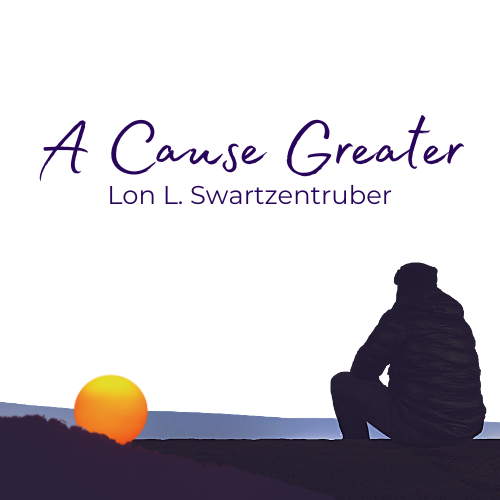(AKA Being a Better Human)
Leadership Endeavor Step #2: Being a better listener and communicator
Ok, let’s be honest. Developing oneself is hard work. Perhaps the most important step is to acknowledge that working on our people skills is needed in the first place.
There are many things keeping us from acknowledging that we need to work on being a better human, such as:
- Our belief that we are already great at people skills and the softer side of relationships.
- We are in a position of power which can diminish another person’s willingness to speak truth to us.
- Someone does offers a suggestion about how they experience us, but that is just their opinion, and we don’t take the time to listen.
The list could go on, but I think you get the idea.
Acknowledging the people skills that we need to develop, such as listening, our emotional intelligence, (understanding other people’s emotions and their effect on themselves and those around them, as well as your own emotions and their impact on you and those around you), and our communication skills are three important personal skills that can be developed over a lifetime.
Developing these skills also helps us grow in our own self-mastery. (For more on Endeavor Step #1: Your journey towards self-mastery, please read last month’s blog.)
As a reminder, here is our simple yet profound leadership development framework that we are using throughout this series. Self mastery at its center, human skills in its inner ring, and personal values in it outer ring.
.png?width=409&height=409&name=Leadership%20frameworks%20(6).png)
In Ginger Lapid-Bogda’s book What Type of Leader Are You? she calls out the importance of creating genuine relationships. Ed Schein called this, establishing Level-two relationships with others. Regardless of the author, having genuine and authentic relationships with others is essential to being a human. These types of relationships are essential in helping us grow interpersonally and developing our people skills.
A person who cares about you (and you them) has the opportunity to hold up a mirror to you, is able to speak truth to you, and is in a position to help you reflect on what you need to do to improve. When we honestly care about another person, we deeply listen to them. Not just to the words that they are using, but to the meaning behind those words, the context of what they are trying to communicate to us, and our willingness and ability to understand what is being shared with us.
To better understand how to listen, I suggest a recently published book, Listening Helping Learning by Mark L. Vincent, and its four chapters on the competencies of listening.
As we strive to develop genuine level-two relationships, I suggest that it will be helpful to better understand our own emotional intelligence (What is called EQ). Now, that may sound obvious, but we each have work to do in developing our EQ. When developing ourselves, especially our emotional selves, it can be helpful to have a training partner. Someone to help us stick with it, to hold up a mirror and ask “how are you doing?”, a fellow traveler on the path to creating a more emotionally intelligent world.
Earlier this year and because of some work a colleague of mine was doing, I came across a new tool to help strengthen our emotional intelligence. It’s called Mygrow.
Mygrow is one of many tools available to help develop our emotional selves. Mygrow’s daily droplets are amazing. Whether you choose to utilize Mygrow or not, I encourage you to find a partner in developing this side of you. There are huge benefits in doing so.
Developing our emotional intelligence as leaders will help us create more genuine relationships, communicate more clearly and directly with others, listen more deeply, increase our ability to give and receive feedback more authentically, and manage conflict more constructively. (Adapted from What type of leader are you?, by Ginger Lapid-Bogda, McGraw-Hill.)
When these components are present in our lives, we have better access to the parts of ourselves that we can be blind to seeing or the parts of our lives that we like to keep hidden. Creating opportunities to diminish our blind spots and our hidden selves helps each of us show up more authentically, more transparently, and with more humanity.
As you build out your individualized leadership development endeavor, I encourage you to rate yourself on each of these five areas on a scale of 1 - 10. Then ask someone close to you that you trust to do the same.
- Creating genuine relationships
- Listening deeply and fully
- Communicating clearly
- Giving and receiving effective feedback
- Managing conflict constructively
Based on your rating of yourself, how might you improve the one with the lowest rating? What are you willing to do to be better your rating at each of the five?
Now, based on what your trusted colleague has shared, where do they see you need the most improvement? Were there any differences in your ratings? I wonder why. What light does this shed on your leadership endeavor?
You’ve done a lot of work today in taking Step #2 Being a better listener and communicator. Congratulations. It’s OK to take a break but come back to your journey in developing your emotional intelligence and in being a better human.
You, your organization, your team, and our world are depending on it.
Mind how you go,
Lon

/Lon%20L.%20Swartzentruber%20Headshot%20(300x300).png?width=107&height=107&name=Lon%20L.%20Swartzentruber%20Headshot%20(300x300).png) Lon L. Swartzentruber
Lon L. Swartzentruber
Design Group International
CEO & Managing Partner
PS: If you would like to talk with me about your leadership journey, please give me a call me at 616.516.9870, or schedule a 30-minute discovery call , or simply email me at lons@designgroupintl.com.
Tags:
process consulting, strategic planning, Design Group International, leading organizational change, listening, helping, learning, relationships, A Cause Greater Blog, visioning/Lon%20L.%20Swartzentruber%20Headshot%20(300x300).png)
October 31, 2023

Comments